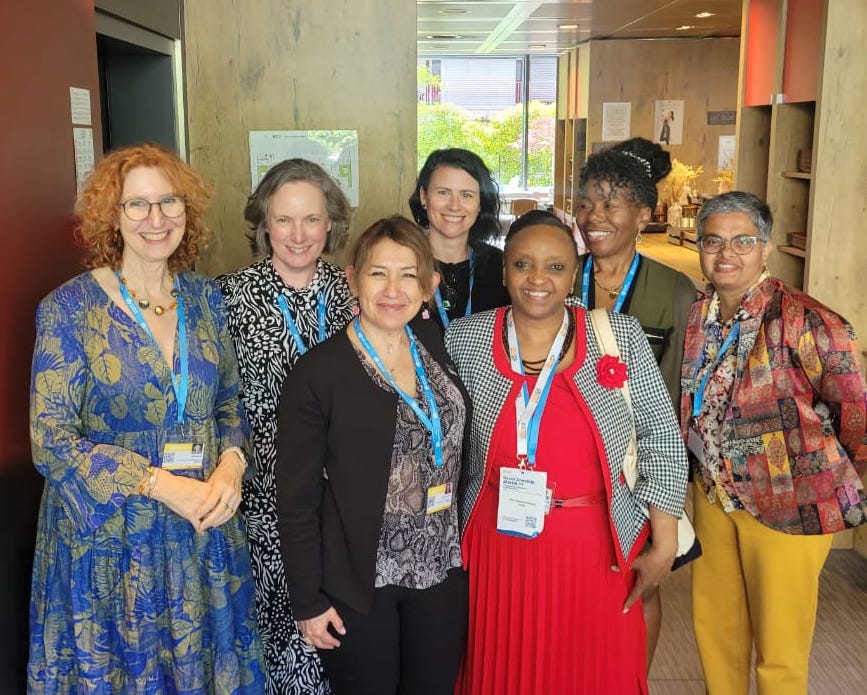FIGO attends the 77th World Health Assembly

The International Federation of Gynecology and Obstetrics is proud to be a non-state actor (NSA) in official relations with the World Health Organization (WHO). In this role, FIGO’s President, Honorary Treasurer, CEO and Head of Programmes Development attended the virtual 74th World Health Assembly to meet valuable partners and kindred organisation, feed into discussions, and provide the global voice for women’s health.
Across six scheduled days from Monday 27 May to Saturday 1 June, FIGO joined several key agenda items through constituency statements – delivered by partner NSAs. We joined written and verbal statements on a range of important topics related to the health and rights of women and girls.

Maternal, adolescent and newborn health
FIGO’s engagement and advocacy work carried with an alliance of civil society organisations – led by the Save the Children Fund – culminated in a constituency statement made at WHA77 in support of the proposed Resolution for the Acceleration towards the Sustainable Development Goal targets for maternal health and child mortality. The comprehensive statement included a call for Member States to Invest in a strong health and care workforce, including nurses, midwives, obstetrician gynaecologists, nutritionists, and community health workers, to improve the delivery of inclusive, comprehensive health and nutrition services.
More than 45 countries will not achieve their national maternal mortality target, while 64 countries will miss the neonatal mortality target, and 59 countries will miss the under-five mortality target by 2030. The Resolution – passed by the WHA – calls for reorientation of health systems toward primary health care to support the process and universal access to sexual and reproductive health care services.
Universal health coverage
FIGO joined a constituency statement led by the NCD Alliance that recognised that inclusion of UHC in 70% of national health policies is a positive step and called for alignment of NCD services with other global health and development priorities.
FIGO also supported a second constituency statement, led by the International Society of Paediatric Oncology, to further urge Member States to prioritise resolving malnutrition, advancing child health, and reducing mortality.
FIGO strongly endorses the additional constituency statement made by the General Health Council calling on Member States to prioritise primary health care strengthen the health and care workforce, increase public health investment, strengthen health data and fund social participation mechanisms.
Follow-up to the political declaration on NCDs
In a constituency statement led by the NCD Alliance, FIGO joined the call for Member States to establish deadlines for national cross-sectoral NCD plans with targets and indicators, in line with the NCD Global Monitoring Framework and including implementation of NCD best buys.
Climate change and health
Agenda item 15.4 at WHA77 focused on climate change. A constituency statement led by the Global Health Council majored on the need for Comprehensive, equitable, gender-responsive, climate-resilient, and sustainable health systems, tools, and workforces, particularly the community health workforce which provide essential care to vulnerable and marginalized communities that face the greatest threat from climate-related health challenges.
Draft fourteenth general programme of work
In this constituency statement led by the Global Health Council, FIGO and partners asked WHO and Member States to continue to support and strengthen engagement with civil society, including young people, marginalised communities, and other key actors at the country, regional, and global levels through consultations, as well as through the inaugural WHO Civil Society Commission.
The WHA77 statement portal contains all statements made by non-state actors in official relations with the WHO. You can also watch all recorded sessions of the WHA on the WHO website.